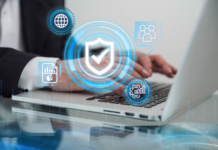The Computer Fraud and Abuse Act (CFAA) was signed into law in 2002 to help protect consumers from identity theft,
as well as to protect the integrity of electronic communications such as e-mails and online banking.
The new law was first signed into law in response to the MySpace, Viacom, and Yahoo! Inc.
cases in which celebrities, athletes, authors, and others were victimized by hackers.
The CFAA went into effect on August 17, 2002.
It makes it a federal crime for someone to acquire a computer without the consent of its owner.
If you’re wondering why this isn’t a crime, because it’s not, it’s because it’s not as severe as a felony.
The CFAA is basically a ‘do it online’ law that doesn’t have much of a penalty.
Under the CFAA,
an accused individual must identify themselves at the beginning of the investigation,
and if they do not, then they can be held liable for up to 10 years in prison and a $10 million fine.
And if you’re looking for a little more information, the CFAA also includes a ‘do it online’ provision.
This is a little different to a felony because it is based on the individual’s intent.
Under the CFAA, you only have to show that you were aware that what you did was wrong.
And, in any event, the more important question is whether or not you should be held liable for not knowing that what you did was wrong.
Yes, if an individual’s motive is to make a profit, it is probably not a good idea to do it online,
but in my opinion this is a very small percentage of the overall internet that should fall in this category.
I have seen a lot of complaints from people who are under the impression that the CFAA only applies to online crimes.
This is just one of the reasons why the CFAA is so useful.
If you can show that you are aware that what you are doing is wrong,
then you should probably be fined and prosecuted.
If you are under the misconception that the CFAA is only intended for online crimes,
then you are likely to be more in need of legal counsel.
The CFAA has been used to prosecute a ton of things that people have done online, from running a scam, to fraud, to hacking.
The biggest offenders are the online fraudster,
but some of the most egregious can also be found on the internet.
I was recently reading about a guy who was found guilty of internet fraud.
The CFAA is still applicable, so it is really important to know how it works.
The CFAA is a federal law that was passed in 1994, and its main purpose is to punish online fraud.
The CFAA is actually a bit more than just online fraud.
It’s mainly about the actions of fraudsters who try to commit fraud using any of the methods of internet fraud, including the practice of phishing for example.
While the CFAA is important, it’s important to know how it works. The CFAA has three parts.
The first is the “prohibited conduct” provision.
Basically, it says that if anyone commits any prohibited conduct, the person could be prosecuted.
This is where a lot of the problems with the CFAA come from.
There are many different kinds of prohibited conduct, and the CFAA says that you can’t use them.
This is because they’re technically not illegal at all, so they’re not considered “banned” by the CFAA.
This means that you can’t use phishing, for example – but you could use any number of other methods that are considered prohibited.
Of course, this doesn’t mean that you can’t do anything you want.
In fact, you can probably do everything you want.
The CFAA also lays out a number of restrictions on the kind of things that you can and can’t do, but the key word is, “can”.
So if you want to steal someone’s password or something, or have your computer “stolen”, you can.
But, again, the word “can” here is important.
And what is the “stolen” part of the CFAA that we’ve all been thinking about?
Not stealing someone’s credit card number.
That’s pretty obvious to most of us. But we’ve also been thinking about what it means to “steal” someone’s identity.
We’ve been thinking about how the CFAA would apply to your own personal information. computer criminals that create and spread viruses are punished under this law.
In the last two weeks I’ve had many of the same questions about “steal” or “stealing”.
I’m not sure if this is the same as saying that you should do a little bit of “stealing”, or if you should just not do it.
But I think the real answer is to leave things out, because we know that if we do something for a reason,
it can lead to the loss of that reason (in this case, your credit card).
I have read several articles and read many articles about the CFAA and how it would apply to your business.
I think most of the articles I read assumed that you had to commit identity theft to be labeled as a criminal.











